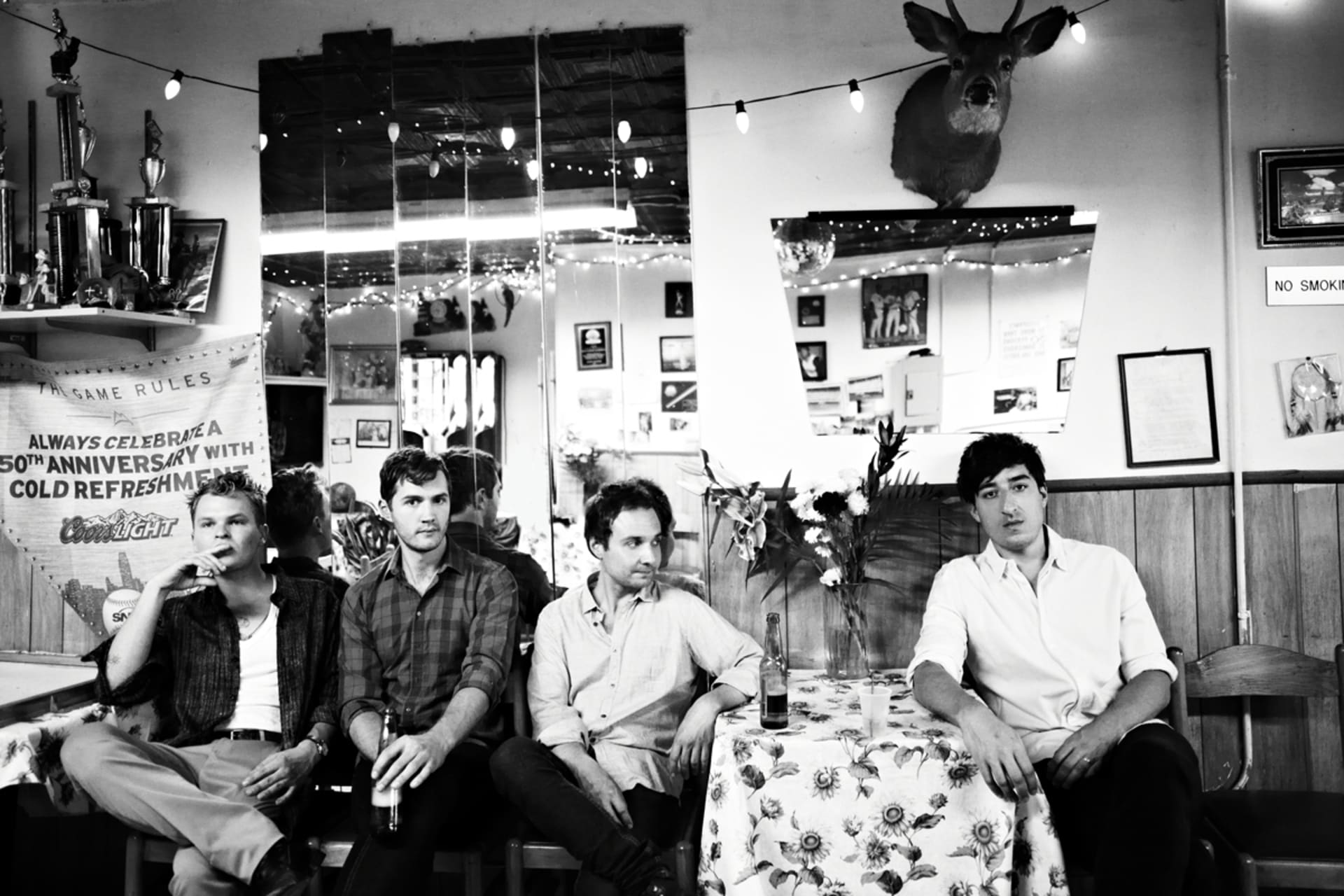
Grizzly Bear — an interview
When Brooklyn-bound band Grizzly Bear signed to British electronic music institution Warp Records in 2006, expectations were quite mixed in the beginning. While the band’s intimate songwriting and hermetic sound atmosphere quickly gained many new fans within the indie community with their sophomore album Yellow House, the laid-back songwriting didn’t connect to the mainstream music audience as well. This drastically changed with the release of Veckatimest and Grizzly Bear music being played in Super bowl commercials as well as Jay-Z making them the future of Hip-Hop. In advance of their new album Shields we got on the phone with producer and multiinstrumentalist Chris Taylor to talk the band’s new album and their next leap forward.
When did you start working on the new album?
We got pretty much all the work February of 2012 to May … May 15th.
And you’ve returned to Veckatimest island?
We recorded some songs there, some in western Texas and also at a church studio space in Brooklyn.
Ed’s Instagram account is quite fun to follow, trying to guess where he and the band is at the moment …
There are some images from the recordings on there, right. Ed loves to travel, so he takes photos from a large variety of places.
Let’s talk about the album. The first track that was released is titled ‘Sleeping Ute’. Is this connected to the Ute mountain?
Yes, indeed! Dan (Daniel Rossen) said that he liked looking at various books about old native american trails. There’s the Ute tribe, and well the trail lead to this mountain. The lyrics of our song talk about wandering and how to keep still in the wild. Well, we’ve been visiting the southwest and soak ourselfs into the imagery of the mountains.
What I liked about ‘Sleeping Ute’ song was that I worked pretty well pulling me into the rest of album, also the progressions, breaks, and rhythms reminded me very much of the post hardcore bands from the late ninetees. How do you as a band work when you write a song?
This particular song was partly written by Dan, just as the lyrics. We sort of came up with the feel of the overall structure. I’ve added some strange feel and sounds from the keyboard. We wanted to make it sound very bombastic and explosive. It’s kind of the constant desire to make a sound of the sun exploding, that’s a t least something I try to do every once in a while in a song. I wanted to have this kind of sensation of an exploding fire, to make the music explode through the speakers with a bright, shining, beautiful, scary light …
It’s funny that you put it this way, because it’s pretty much the same thing I was thinking when listening to the last song on Shields, ‘The Sun in Your Eyes’ with its constant swell and decay, the build-up until the sixth minute and then exploding. It has a very bombastic feel …
The sun is sort of the true god figure that you answer to and live and die by. It’s a spiritually pure thing. I guess we’re thinking about that a lot!
Would consider yourself being spiritual a person?
I personally do, very much. Not a religious person, but, you know …
How did you feel like when Jay-Z praised your last album Veckatimest to the highest levels? What do you as a producer feel when he mentioned that your approach to independent music could be an example for rap music?
He’s gifted and talented just as if the gods gave him something that everyone else can’t get. Everyone’s got their special way within them. It’s a huge compliment even being recognized by someone as prominent as him, but we see it as a great compliment by someone who truly likes the music. It gets a little bit more specifically cool when you’re a musician and you respect that musicians work so much and the they like you, that’s a unique giant compliment.
Was is it like for you as the producer in Grizzly Bear? Do you need to interfere much with the works of the others?
Only in a sense in trying to draw out the best moments that we feel capable of. It’s like insisting on showing their best and most interesting side, or maybe their most anxious side — whatever the case may need. It’s just knowing everyone in the band very well that helps pull these things from them — in a way that is unique and that you couldn’t hire an outside person to do something like that. I consider myself lucky to be surrounded by people that are talented. All I really want to witness is their finest moments. I try to challenge them. It constantly wouldn’t do to perform something in a way that they didn’t expect — in a very reactive, natural impulsive way. It’s sort of same spirit that helps you stay alive. It just feels interesting looking at people’s unexpected sides, and especially watch them witness it. And of course I want to make the experience of making music lovely, special and unique — instead of making it feel like a job. That’s not the motivation. The motivation is to try and make it a true experience. It’s my life, and I want it to be a real thing.
Photo: © Barbara Anastacio
Published September 20, 2012.
